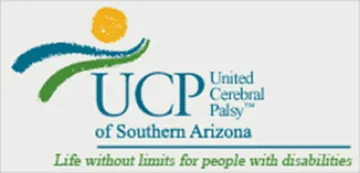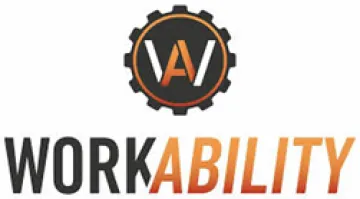The CACTI Blog: Working at WorkAbility and Learning About Employment Services

By Nick Marcell, 2020-2021 Undergraduate Certificate in Developmental Disabilities
During spring semester of 2021, I was able to participate in a paid internship with United Cerebral Palsy of Southern Arizona (UCPSA)/WorkAbility as a Job Coach. This was made possible through the help of one of our cohort members, Vanessa Zuber, who is the Director of Employment Services with UCPSA. She helped create what WorkAbility is today. Knowing that my research topic is employment services, the internship would provide me the insight that can only be found through hands-on experience.

Before starting training with UCPSA, I pondered why I wanted to focus on employment services during my time as a Sonoran Center Trainee. It originally started when I reflected on my experience at my first job back in high school. I worked at Café Rio Mexican Grill in Phoenix, Arizona and it was a fast-paced environment in the service industry. During my time there, I learned a lot about responsibility, communication, and what to do with my earnings over time. The part that stuck out to me was the job search because I did not have that job until I was 18 years old and finishing my last semester of high school. I started looking for jobs since I was 16 and it took me much longer than expected to find any work experience, which might have been due to my lack of prior work experience and knowledge. Fortunately, the person I interviewed with, who would become my supervisor, gave me an opportunity to work because he saw something in me, and it has made a huge difference in my life. The reason why job searching is relevant to the disability community is because there are challenges that job seekers face when finding their first job, like networking and relentlessly seeking out employers, which can be difficult to overcome, especially for people with disabilities. Employment services like WorkAbility provide a bridge between job seekers and employers looking for new employees with the help of job development, supported education, customized employment, and more.
My first experience with entering the hiring process was the official application to be a Job Coach with WorkAbility. It was an online form that asked for the typical information found on a resume. While that was taken care of, I went through CPR/First Aid/AED training for the first time in-person. I had previously got certified online, but it does not compare to in-person instruction. After verifying my three references, I started to learn more about the company through policies and procedures training and Article IX training, which is a law specific to the Divisions of Developmental Disabilities (DDD) in Arizona designating appropriate methods for supporting people with disabilities.
The training component that took the most time was the video trainings required on the UCPSA side of the office, and what stood out to me was the first module that discussed sensitivity. This module was by far the most detailed in length and information because sensitivity for interacting with people with disabilities is crucial to foster positive connections with them. Flexibility also plays a role in being a Direct Care Worker (DCW) as a person’s disability can range from mild to severe, in which case the DCW makes a conscious decision of how to support the member.

The WorkAbility training also came with specific teaching strategies for being a a Job Coach, with a key strategy being “fading”. This is where the Job Coach establishes where the supported member is on their tasks and gradually reduces the engagement of help until they are able to perform the tasks on their own. Fading leads to the supported member taking charge of their role in a way that promotes autonomy and confidence that eventually results in the member no longer needing the consistent job retention support.
My first time job coaching on a job site was with someone working in a service industry in the back with the dishes. The member received high praise for their work and before I even started job coaching, I knew this member would excel. While only being in the job for two months and it being their first job ever, the supported member took charge of their role and knew exactly where the pots and pans went versus the cups and plates. The member was quick on their actions during the lunch rush hour and knew that given the time and space, they would complete the necessary tasks. It made my job easy and the member promoted a healthy work environment because of the hard work. I was able to see the end goal of job development first-hand and I want to find ways to advocate for the disability community that align with their personal values.
The CACTI Blog features the voices of our interdisciplinary trainees and Community Advisory Council members as they highlight diverse images of people with disabilities and provide community information and advocacy on disability issues. Check Out The CACTI Blog
